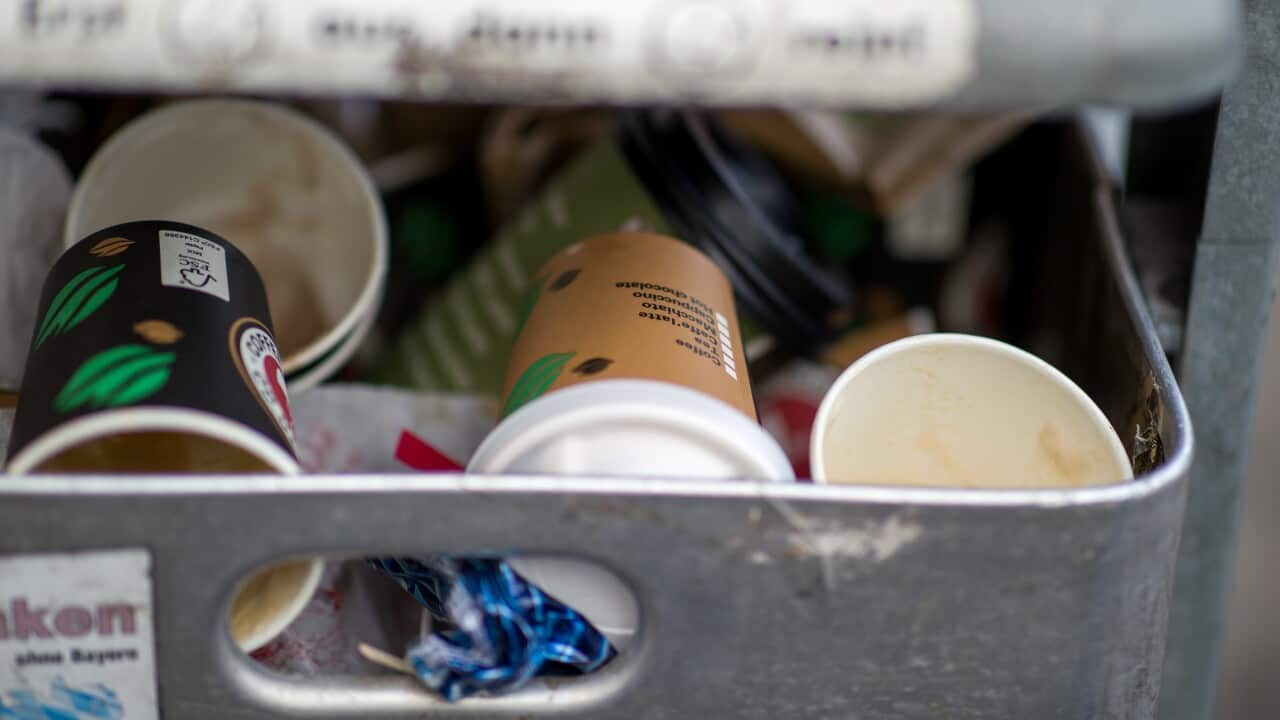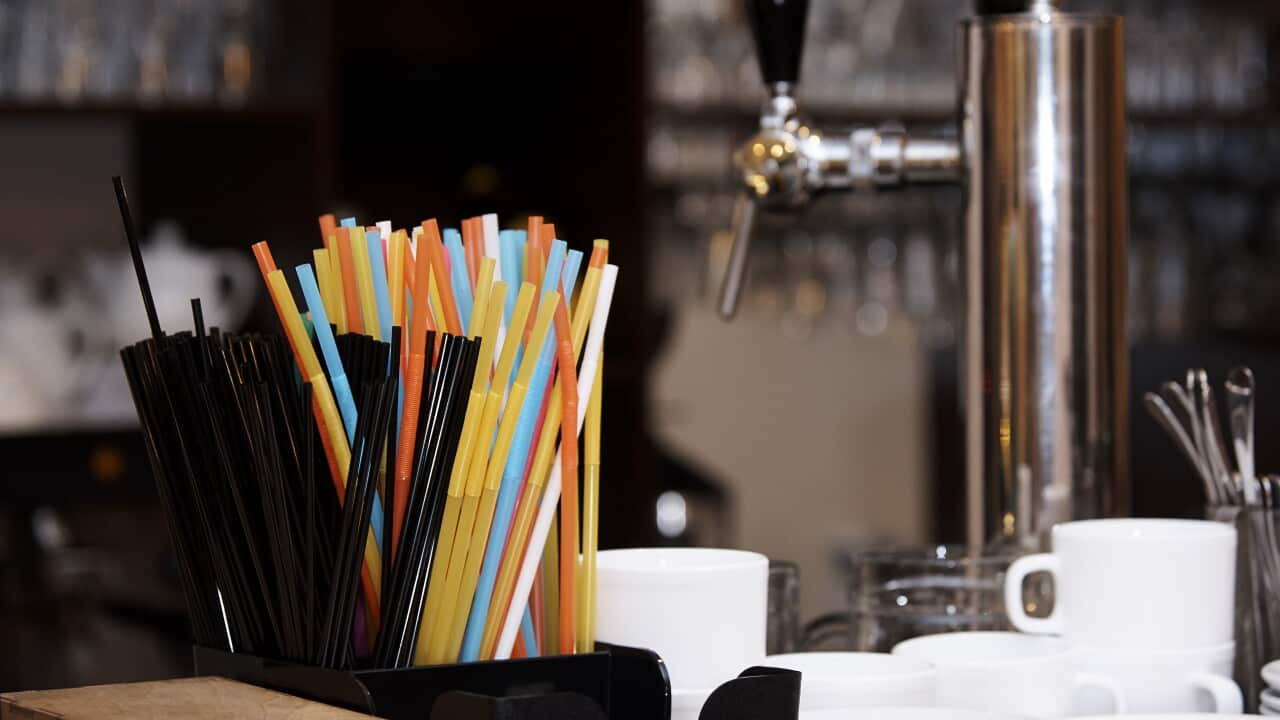Key Points
- Western Australia's takeaway coffee cup ban comes into effect from 27 February.
- An estimated 1.84 billion single-use cups are used by Australians every year.
- Compostable coffee cups can still be sold but advocates say the infrastructure to properly process these cups is not accessible.
Western Australia is set to ban certain cups normally used for takeaway coffee as part of ongoing .
From 27 February, the cups — which are also widely used by cafés across Australia — will be banned from being sold in WA.
While much of the body of the coffee cups are made of cardboard, they are usually lined in plastic so the liquid doesn't make the cup soggy.

If disposed of in general waste, compostable coffee cups will create methane as they break down in landfill. Source: Getty / Nungning20
But those advocating to reduce waste are encouraging people to use reusable coffee cups where they can, as the compostable alternatives may not be as environmentally friendly as people had hoped.
WA's latest single-use plastic bans
Following a ban on lightweight plastic bags in 2018, WA banned a number of single-use plastic items at the start of 2022 including plates, cutlery and straws.
This next stage will see plastic produce bags and cotton buds with plastic stems added to the ban, as well as the non-compostable plastic takeaway coffee cups.
The WA government said alternative coffee cups would cost retailers an extra 7 cents per coffee if consumers did not bring their own cup or have a dine-in coffee.
While retailers and suppliers could face fines up to $25,000, the state government said it would use a "common-sense, education-first approach", allowing for transition periods of between six and 28 months for different items.
The plastic coffee cup ban is expected to be fully enforced from March 2024.
The WA government estimated the state would reduce its plastic waste by 700 million plastic items a year as a result of these further bans.
South Australia is the only other state or territory to , with a ban coming into place in September 2024.
Alternatives to the cups currently on offer
As Premier Mark McGowan pointed out in a social media post, compostable takeaway coffee cups are an alternative to the ones that will be subject to the ban.
If the right processes are followed, compostable coffee cups can break down within 12 weeks in industrial facilities.
Waste reduction advocates have concerns
Plastic Free Foundation executive director, Rebecca Prince-Ruiz, said the issue with WA's "ban" was that it wouldn't greatly reduce the amount of material being used.
"If the [compostable] cups are not composted and are instead sent to landfill, which is the likely outcome, they will simply add to the production of methane," she said.
"Yes these items may be compostable but most are being used in public places, so will end up in public bins, it is unlikely they will end up in the industrial facilities [that process them].
"We don’t necessarily have the collections and systems to deal with them," Ms Prince-Ruiz said.
Sharka Hornakova, founder of social enterprise Donut Waste which provides sustainable education and solutions, said she does not see how the industrially compostable coffee cups sold in WA will actually be composted.

Sharka Hornakova says WA's incoming ban on takeaway coffee cups does not go far enough.
"The potential for cross-contamination is too high, so any coffee cups are separated out to general waste," Ms Hornakova said.
Compostable cup manufacturers
Gary Smith, the CEO of BioPak, said the compostable coffee cups manufactured by his company did not contain PFAS.
He said councils in Hobart and Adelaide accepted compostable packaging in their FOGO collections and given the increase in single-use plastic bans, regulators should work to ensure certified products were accepted.
Mr Smith did not say what percentage of BioPak’s compostable coffee cups were composted but said "education is needed to help ensure our packaging returns to nutrient soil".
What's the alternative?
Ms Prince-Ruiz said research by her foundation suggested a measure likely to create behaviour change around coffee cups would be implementing a fee for customers who choose to get a takeaway coffee cup.
The other would be a complete ban on takeaway cups for dine-in venues with the ability to wash dishes.
Ms Hornakova pointed out there were already cafés operating on this basis but others were not implementing the policy over fear they could lose business.
"Cafés worry if they do that, people will go somewhere else, so why not make it across the board?" she said.










